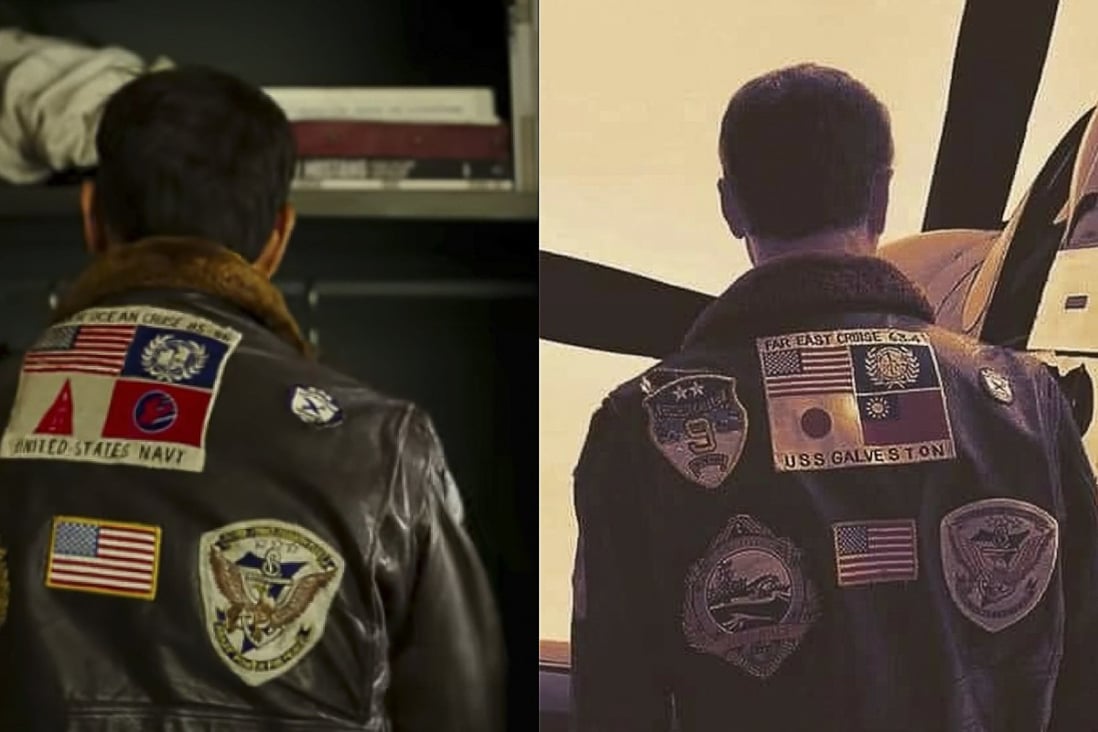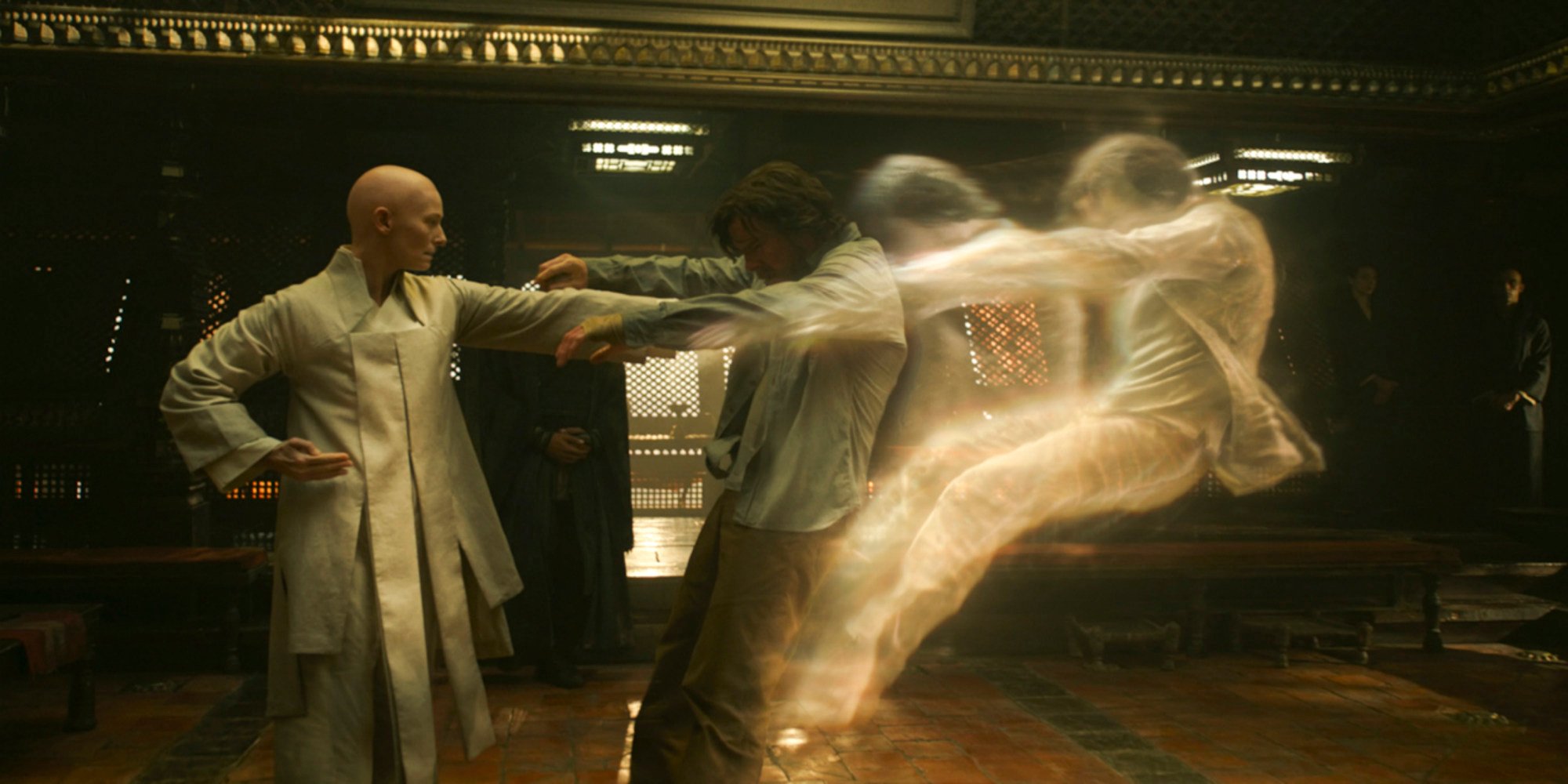
Hollywood used to bend over backwards for China. Top Gun: Maverick shows it might not any more
- The
long-awaited sequel to the 1986 cult classic initially removed the
Taiwanese and Japanese flags from Tom Cruise’s jacket to please Chinese
censors
- But
as US-China ties soured and Chinese tech giant Tencent pulled its
backing amid a US media backlash, the flags mysteriously reappeared
Tom
Cruise’s character wears a bomber jacket with a patch featuring the
Taiwanese and Japanese flags in the original ‘Top Gun’ film .
The days of Hollywood executives cosying up to Beijing may be over.
So thinks Erich Schwartzel, author of the book Red Carpet: Hollywood, China, and the Global Battle for Cultural Supremacy, which looks at how Chinese investments in America’s soft-power behemoth have altered the power balance between the two nations.
Realising the gold mine that China’s massive market represents for American films approved for release there, major US studios and filmmakers have bent over backwards to flatter – or avoid offending – the censors in Beijing.

Tilda
Swinton’s character in the 2016 Marvel movie ‘Doctor Strange’ was
changed to a Celtic mystic, instead of a Tibetan monk, to please Chinese
censors. Photo: Marvel Studios/Walt Disney Studios Handout
But the pendulum may have swung the other way, according to Schwartzel, who covers Hollywood for The Wall Street Journal and illustrated his argument with a tale of two films: 1986’s Top Gun and the sequel to it released earlier this year, Top Gun: Maverick.
When the movie poster and trailer for the latter were first unveiled in 2019, eagle-eyed viewers noticed that the Taiwanese and Japanese flags on the bomber jacket worn by Tom Cruise’s fighter-pilot character in the original had been removed.
Cue a chorus of fans, media commentators and politicians in the United States accusing the film of pandering to Beijing.
But when Top Gun: Maverick eventually hit screens in May this year, the flags had been restored – and Schwartzel thinks this shows how Hollywood has realised that the optics of trying to make Beijing happy have changed.
The once-blossoming China-Hollywood relationship has now become more of a liability for both sides, he argues.
Speaking at a recent event in Los Angeles, Schwartzel said: “We can think about this as the story of what happened between Top Gun 1 and Top Gun 2.”
Tom Cruise in the original ‘Top Gun’, which Schwartzel called the ‘perfect marriage’ of entertainment and patriotic US propaganda. Photo: Paramount Pictures
The original Top Gun was textbook flag-waving American government propaganda – “a perfect marriage of entertainment and [pro-]government philosophy,” he said.
“We have a movie that not only allowed [US military] recruitment to surge but sales of Ray Ban [sunglasses, worn by Cruise’s character] to surge. That is an impressive feat.
“But when the trailer for the new Top Gun came out, it was very clear that they had edited out the Taiwanese and the Japanese flags from Tom Cruise’s jacket.”
And even though it was clear that Hollywood had been trying to appease China for years, this change might have been a bridge too far, he said.
“I think for many people it was, like, ‘Wow, the Chinese influence in Hollywood is such that even a movie as inherently patriotic as Top Gun is not immune to this.’”
The outcry over the flags then became a cause célèbre, especially among conservative media outlets in the US. And Paramount, the studio behind the franchise, “took a lot of flak for it”.
This helps explain why studio bosses decided to leave the flags on Maverick’s jacket when the sequel was eventually released this year.
And the fact that Top Gun: Maverick then did so well – earning more than US$1.3 billion worldwide to become the highest-grossing film of 2022 so far – is a reminder that Hollywood does not always need the China market to score a hit.
If you look at the Chinese box office today, it’s pretty clear that there’s very little need for Western talent any more Erich Schwartzel, film journalist and author
In the three years that have passed since 2019’s furore over the studio dropping those flags, “what has changed is that it’s become more of a political liability in the United States to acquiesce to Chinese censors than is worth it for a lot of studios”, Schwartzel said.
At play too is the fact that Chinese censors have repeatedly shut out many major Hollywood films from the China market, including blockbusters such as last year’s Spider-Man: No Way Home.
And Paramount “knew, by that point, there was no way that Chinese officials were going to allow a movie like Top Gun: Maverick to be released in their theatres”, Schwartzel said.
Chinese conglomerate Tencent bowing out as a backer of the film because of its pro-US message was also significant, he said.
Schwartzel recalled the company announcing its investment in the Top Gun sequel at a Shanghai film festival in 2019, when the love affair with Hollywood was still going strong.
“I thought: ‘That’s a very bold choice.’ That’s not exactly the movie you would think Tencent was going to go into,” he said.
“And it turns out that as US-China relations started to really fray, Tencent executives also determined that they didn’t want to be anywhere near this.
“So they very quietly dropped out of the film and no longer have that investment – which, now that the movie has done so well, has cost them considerable revenue.
Russian film crew beats Tom Cruise to arrive first in orbit for maiden shoot in space
“But I think it speaks to how executives in both countries now realise: I might get more heat at home than I would have even just two years ago. And I have to worry more about that than maintaining market access.”
Chinese investors rushing to finance Hollywood projects may be a thing of the past as well, Schwartzel said.
“I think those days are over,” he said. “I don’t see any Chinese financing behind the scenes right now and I don’t see it coming any time soon.”
Film-goers might still spot the odd Chinese company name or two popping up in the end credits of some American films, “but the days of Alibaba announcing a multi-picture deal with Paramount or something like that feel like they’re very far away,” Schwartzel said.
Alibaba Group, owner of the South China Morning Post, has in the past financed such Hollywood films as Mission: Impossible – Rogue Nation and Star Trek Beyond.
“There was a moment in 2015 and 2016 when a lot of Hollywood talent was being hired to go to China and teach Chinese producers how to make films the Hollywood way,” said Schwartzel – see the Russo brothers, the filmmakers behind 2019’s Avengers: Endgame, and Renny Harlin, who directed Die Hard 2.
“But I think that that moment has passed. And if you look at the Chinese box office today, it’s pretty clear that there’s very little need for Western talent any more. I think that Chinese filmmakers have absorbed a lot of those lessons.”




No comments:
Post a Comment
Note: Only a member of this blog may post a comment.